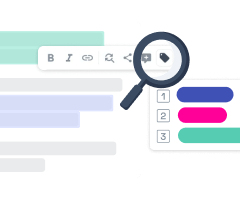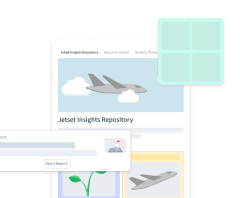
The Evolution of the User Research Role: From Insight Collector to Business Orchestrator
Companies are hungry for insights, but they don't seem to be hungry for researchers. Bold, right? But let’s break it down. According to the Maze Future Research Report from 2024, 75% of companies plan to scale their research efforts, but only 20% are looking to hire more researchers. Meanwhile, User Interviews revealed that the number of research teams with zero dedicated researchers has hit its highest point in five years.
The shift is clear: teams across product, design, engineering, marketing, customer success, and support are increasingly stepping into the research role without a dedicated researcher on board.
This has sparked a growing debate:
If other functions can conduct research, why do companies still need dedicated researchers?
And how can researchers redefine their value to stay indispensable?
This puts researchers in a delicate position, one that requires mindful navigation. In our recent Meetup Talk, Julian Della Mattia, Senior Product Researcher at DuckDuckGo and Founder of Finders to Builders, shared his insights on the evolution of the user research role, as well as some strategies to help researchers transition from insight collectors to business orchestrators. Let’s dive in!
A New Era for Researchers
For a long time, researchers have been the ones who do the research. Research and the researcher were one and the same. But as research activities have expanded across teams, the line between the researcher and research itself has started to blur.
Acclaimed user researcher and consultant, Behzod Sirjani, suggests that research can start long before formalized roles are established, as soon as a company begins seeking answers from its customers.
This change presents a chance to rethink how you, as a researcher, approach your role. Companies are recognizing the importance of research, but they need guidance on how to implement it effectively.
It's time for a shift in how you define the role.

Instead of solely associating your value with being the person who conducts research or answers questions, you should broaden the scope and think in new terms about how you can contribute and make an impact.
Shifting from Finders to Builders
The key to staying indispensable as a researcher is shifting from a “Finder” mindset to a “Builder” mindset. The “Finder” role is focused on gathering data and answering questions. While this is a core part of what researchers do, it’s no longer enough. Researchers must move beyond just conducting research and focus on building sustainable practices that are larger than themselves.
By adopting the role of a "Builder," you can create a research culture that empowers others and ensures that research plays a central role in decision-making across teams. This shift is crucial for both new and experienced researchers, as it helps research thrive and make a lasting impact in organizations.
Embracing the Shift: Moving Beyond Research Execution
The key to thriving in this evolving landscape is recognizing the importance of not just conducting research but helping the entire team understand the value of insights and make informed decisions based on them.
Let’s look at three strategies for how you can embrace this new approach and make a deeper impact on your organization’s success:

Build a research culture
Creating a research culture starts with enabling a mindset shift across the organization. It’s not just about doing research. It’s about empowering the whole team to learn more effectively and make better decisions. As more experienced researchers, your role is to help others discover insights, make sense of them, and raise the overall level of knowledgeability within the company.
However, a difficulty that researchers often face is that they’re outnumbered. You might be the only researcher among many engineers, designers, and product managers. In such situations, it’s important to think differently.
Instead of only focusing on finding answers to every question, focus on elevating the entire team’s research skills. Help them become better at gathering insights and making sense of the data. This doesn’t just mean advocating for research democratization; it’s about helping others improve their research capabilities.
A researcher’s role can be likened to that of a striker in soccer, focused on scoring goals by delivering insights. But researchers should also think of themselves as playmakers. Moving the ball around, collaborating with the team, and helping others to succeed.

For example, if Marketing is sending out a survey, offer to help improve it so they can gather better insights. If Product is talking to customers, offer tips on how to avoid leading questions or make the most out of those conversations.
The more you help others get better at learning and researching, the more you elevate the entire team's ability to understand users and make informed decisions.
„The more people value learning from customers or users, the more research overall is valued, and the better it is for everyone.“
Ultimately, the goal is to influence decisions. While you can directly influence decisions by delivering answers (the “striker” role), the real power comes from elevating others’ understanding of research and helping them apply insights to their decisions (the “playmaker” role).
Build an infrastructure
Scaling research across an organization requires the right infrastructure. This involves both operations infrastructure and knowledge infrastructure, which together support a smooth, efficient, and impactful research practice.
Operations Infrastructure: This includes key elements like participant management, tooling and training, templating, and compliance (such as consent and privacy). Without these basics in place, the research practice won’t function effectively. It’s like having a car with no gas — research can’t go anywhere without this essential infrastructure.
Knowledge Infrastructure: The second critical component is connecting insights across teams. Research data doesn’t only come from researchers. Product, Marketing, Customer Support, and other teams also generate valuable insights. By creating a centralized repository like Condens you can prevent data silos, ensuring that everyone has access to and can learn from research. Triangulating insights from different sources also ensures quality and reliability.
By building both infrastructures, you ensure that research can scale and that valuable insights can be shared across the organization. Empowering teams to make better, customer-driven decisions.
Build a voice
Researchers are the experts when it comes to understanding user insights. Yet, they often hesitate to express their opinions, especially when they’re new to a role or working alongside others conducting research. This can lead to their voices getting lost in the process.
You, as a researcher, must remember that your insights are valuable and should be shared confidently. Don't shy away from offering counsel or giving recommendations based on your findings. Your role is not only to gather data but also to guide the organization forward with your expertise.
As a researcher, you need to develop a clear point of view and confidently share it. Think of yourself as a consultant or counselor, helping others understand the data and showing them how to apply it.

It’s not about stepping back and saying, “You figure it out.” It’s about stepping up and saying, “Here’s what I recommend based on what we know.”
Reimagining the Researcher’s Impact
The key takeaway here is that researchers must move beyond the “Finder” mindset, where they are only focused on gathering insights, and instead embrace the role of “Builder.”
This shift will be crucial to driving success within companies. By focusing on building research culture, infrastructure, and a strong voice, you can make a lasting impact and ensure that research remains indispensable to organizational success.
Watch Recording 🎥
This article is based on a UXR Meetup where Julian Della Mattia, a researcher specializing in establishing research practices from scratch, shared his insights on how researchers can leverage their skill set to expand their role beyond just doing research.
You can get the full recording of the meetup here:








